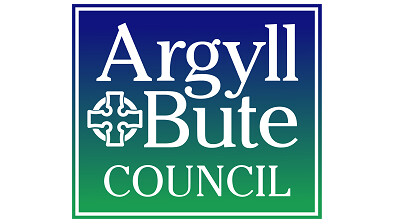Argyll hotel sued for £168,000 electricity bill allowed to present proof case based on defective electric meter

SSE Energy Supply Ltd raised the case against Stag Hotel Ltd
A commercial judge has rejected a proposition by an electricity supplier that a hotel’s case against non-payment of a £168,000 bill accrued over the past five years is irrelevant.
SSE Energy Supply Ltd raised the case against Stag Hotel Ltd, the owner of a hotel in Argyll, for monthly invoices issued from June 2017 to March 2022. The defender contended that the meter on the premises did not function properly and had given grossly excessive figures during the meter reading, especially given the long period of closure during the pandemic.
The case was heard by Lord Clark in the Outer House of the Court of Session. Boni, advocate, appeared for the pursuer and Beynon, advocate, for the defender.
Lacking in specification
It was the defender’s position that the final bill did not reflect the substantial decrease in its use of electricity while the hotel was fully closed or operating only on a limited basis. An offer was made of payment in full of a reasonable estimate of the electricity actually supplied and consumed at the premises. The pursuer sought the full payment of £168,382.04 and raised three grounds for the granting of a decree de plano.
Counsel for the pursuer argued that the defender’s averments concerning the defective state of the meter were irrelevant and lacking in specification. In the absence of proper averments or supporting evidence, it could not discharge the burden of proof. For the defender it was argued that the pursuer required to prove that the meter was functioning properly at all material times, and it was averred that the person who had dealt with the meter over the last few years had been told as much by his colleagues.
In respect of its second ground the pursuer argued that it was apparent that there was significant occupation of the hotel by guests when it had been purportedly closed to the public. Further, there were no averments by the defender that it had disconnected electrical appliances such as fridges and freezers during the closure period.
Finally, counsel for the pursuer challenged the defender’s averment that it would pay a reasonable estimate of the cost as irrelevant. The defender stated that the averment reflected the contractual position of the parties, under which SSE was obliged to make a reasonable estimate of charges where information for charging purposes was deemed to be inaccurate.
Factual dispute
In his decision, Lord Clark said of the onus of proof: “I do not accept the defender’s argument that the pursuer must prove, by factual evidence, that the meter was functioning properly during the whole period of the claim. Practically speaking that goes too far, as the presumption omnia praesumuntur rite et solemniter acta esse (ie that everything was done validly and in accordance with the necessary formalities) may fall to be applied. It has been applied by the court in a number of circumstances, including the functioning of mechanical instruments, devices or tools.”
He continued: “I see considerable force in the point made on behalf of the pursuer as to the main assertions (not functioning properly, not properly calibrated and giving grossly excessive figures) being unvouched by adequate detail in the averments. However, the defender does aver that a representative of the pursuer’s agents told the defender that the meter was defective.”
Lord Clark concluded on this matter: “The reference to an inability to communicate and display an accurate reading, and the battery failure are the only reasons asserted by the defender as to why the meter is not functioning properly or not properly calibrated, and producing grossly excessive results. To that extent only, those averments do not fall to be excluded, but evidence as to other reasons as to the nature of any defects and why it is that the meter it is not functioning properly or properly calibrated cannot, on the pleadings as they stand, be led as no fair notice of any such other reason has been given.”
Addressing the second ground, Lord Clark said: “The defender’s position in relation to reasons as to why the meter is said not to function properly or to be properly calibrated is limited to the matters discussed above in relation to ground 1, but it is at least possible that inferences as to accuracy of the meter readings may be drawn from such a comparison. In addition, evidence on the pursuer’s points about electricity still being consumed when there is no disconnection will be needed. This is a stark example of a factual dispute that requires evidence before it can be resolved. I therefore refuse the pursuer’s motion to exclude these averments from probation.”
On the third ground, he concluded: “In essence, the defender is averring that, if successful on the alleged defects or failures in the meter, this other contractual remedy should apply and the defender would accept the duty for payment under it. While not directly relevant to the issues between the parties, it is an averment which reflects the defender’s position of how the contract should apply if the defender succeeds. For that reason, the averment is not excluded.”
For these reasons, Lord Clark ruled that the defender’s averments should be dealt with at a proof before answer, although he excluded a single averment of the pursuer being in breach of an unspecified statutory provision.
















